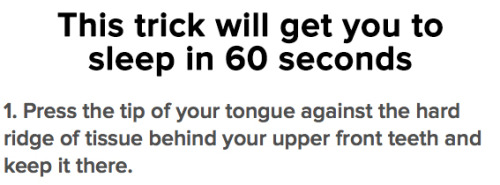🧡🧡🧡


🧡🧡🧡
More Posts from Galaxy62 and Others
Amaya, signing: Explain to me how Callum broke his leg.
Rayla: We were running downhill and a deer jumped in front of us, so I yelled, "Callum, deer."
Amaya, signing: Callum, what did you say?
(uncomfortable silence)
Callum: "Yes, honey?"
A Note on Paragraphs
Writing fan fiction online and writing essays for school really messed up how I view paragraphs.
For fan fiction, I didn’t write for mobile, I wrote for web browsers, which are really really wide (unless you read on mobile but I always read on my desktop). In order for paragraphs to look like decent sized paragraphs (and I wanted them to, to look more like a “real” writer’s work) the paragraphs had to have a ton of lines and lots of prose and description which I struggle with A LOT.

(For example, these look like pretty short paragraphs but do you see how long they are?)
For school essays, I was often required to write thousands of words— in five paragraphs. This, as you may have already guessed, resulted in absolutely atrociously huge paragraphs that my brain still recognizes as the proper size paragraph.
WHICH IT MOST DEFINITELY IS NOT.

These are four random books I chose (In order, left to right, top to bottom: Wizard of Oz, Harry Potter, Lunar Chronicles, Star Wars). The longest paragraph is in the Harry Potter one and it is 100% just the first paragraph that introduces the setting.

I tried changing my google doc from it’s original, default, printer page size (8.5 x 11 inches) to one of the standard-ish sizes of paperbacks I found online (5.5 x 8.5 inches). It made a very noticeable difference.

If anybody wants to try this, go to file → page setup to change any settings you want.
Filling up an entire printer page sometimes feels like pulling teeth and I think for those of us who struggle with this, something as simple as changing the way we see our writing and the way we write could really make a difference. Hell, even for editing. I’ve heard people say sometimes that changing the font makes a huge difference and makes it easier to spot mistakes so I’m sure this could work in much the same way.
For those struggling financially.
I thought I’d post some helpful links to sites I use for extra cash. These sites have saved my bacon more than a few times in the past couple of years. I can vouch that they do work and are not scams. I’ll post info with each site and how they work.
1.) Swagbucks This one is my go to website because it has the most to do. You can watch videos on your tablet, iphone, or desktop. There’s surveys you can fill out and special offers that are free(though if you do those special offers I’d use a junk email, but keep in mind that you do need to register for Swagbucks with the email associated with your paypal so you can get paid). Since I’m a stay at home mom I am mostly doing this all day long while doing my art commissions or running this blog. I earn about $100-$200 a month from this site alone. They also have giftcards to other stores, and if you redeem some of the $25 giftcards they are 300 sb(equivalent to $3) once a month. So I suggest redeeming one wal mart giftcard a month to take advantage of that and save the 300 sb(sb are points btw). Use this to get yourself groceries or necessities. The rest of the month you can redeem paypal and you can get that cash transferred to your bank to help pay for bills.
*removed*
3.) Inbox Dollars This one is very slow to pay out for me but that’s only because I JUST do the emails. It does offer special offers, surveys, and videos like swagbucks but I only concentrate my efforts on clicking the links in the emails they send me. By clicking the links in the emails you earn 2 cents. This adds up with time and its easy to do when you check your email like you normally do. It takes very little effort so it’s worth adding to your daily routine. If you want to do more on this site then you’ll earn faster. They mostly just send you a check, but they do offer a debit card and giftcards now.
Lance, Pidge, and Nebulas.

Green and blue trash nebula fluffs. The Trash Paladin sculpture of Lance that Pidge made while stranded in the nebula.


Their ridiculous puns are nebulegendary.

Is this mysterious nebula in the season 8 trailer a hidden clue to Pidge and Lance’s endgame?
when I am listening to love songs, it doesn’t mean I’m thinking about me being in a relationship!
IT MEANS I’M THINKING ABOUT MY SHIPS IN ROMANTIC SETTINGS!!!
every single person who reblogs this
every
single
person
will get “doot doot” in their ask box
Yall every just zone out and remember the fact that Rayla and Callum will be traveling through Xadia TOGETHER ALONE LIKE DO YOU REALIZE HOW THE IDEA ALONE HAS SO MUCH SHIP FUEL
Tips to learn a new language
The 75 most common words make up 40% of occurrences The 200 most common words make up 50% of occurrences The 524 most common words make up 60% of occurrences The 1257 most common words make up 70% of occurrences The 2925 most common words make up 80% of occurrences The 7444 most common words make up 90% of occurrences The 13374 most common words make up 95% of occurrences The 25508 most common words make up 99% of occurrences
(Sources: 5 Steps to Speak a New Language by Hung Quang Pham)
This article has an excellent summary on how to rapidly learn a new language within 90 days.
We can begin with studying the first 600 words. Of course chucking is an effective way to memorize words readily. Here’s a list to translate into the language you desire to learn that I grabbed from here! :)
EXPRESSIONS OF POLITENESS (about 50 expressions)
‘Yes’ and ‘no’: yes, no, absolutely, no way, exactly.
Question words: when? where? how? how much? how many? why? what? who? which? whose?
Apologizing: excuse me, sorry to interrupt, well now, I’m afraid so, I’m afraid not.
Meeting and parting: good morning, good afternoon, good evening, hello, goodbye, cheers, see you later, pleased to meet you, nice to have met.
Interjections: please, thank you, don’t mention it, sorry, it’ll be done, I agree, congratulations, thank heavens, nonsense.
NOUNS (about 120 words)
Time: morning, afternoon, evening, night; Sunday, Monday, Tuesday, Wednesday, Thursday, Friday, Saturday; spring, summer, autumn, winter; time, occasion, minute, half-hour, hour, day, week, month, year.
People: family, relative, mother, father, son, daughter, sister, brother, husband, wife; colleague, friend, boyfriend, girlfriend; people, person, human being, man, woman, lady, gentleman, boy, girl, child.
Objects: address, bag, book, car, clothes, key, letter (=to post), light (=lamp), money, name, newspaper, pen, pencil, picture, suitcase, thing, ticket.
Places: place, world, country, town, street, road, school, shop, house, apartment, room, ground; Britain, name of the foreign country, British town-names, foreign town-names.
Abstract: accident, beginning, change, color, damage, fun, half, help, joke, journey, language, English, name of the foreign language, letter (of alphabet), life, love, mistake, news, page, pain, part, question, reason, sort, surprise, way (=method), weather, work.
Other: hand, foot, head, eye, mouth, voice; the left, the right; the top, the bottom, the side; air, water, sun, bread, food, paper, noise.
PREPOSITIONS (about 40 words)
General: of, to, at, for, from, in, on.
Logical: about, according-to, except, like, against, with, without, by, despite, instead of.
Space: into, out of, outside, towards, away from, behind, in front of, beside, next to, between, above, on top of, below, under, underneath, near to, a long way from, through.
Time: after, ago, before, during, since, until.
DETERMINERS (about 80 words)
Articles and numbers: a, the; nos. 0–20; nos. 30–100; nos. 200–1000; last, next, 1st–12th.
Demonstrative: this, that.
Possessive: my, your, his, her, its, our, their.
Quantifiers: all, some, no, any, many, much, more, less, a few, several, whole, a little, a lot of.
Comparators: both, neither, each, every, other, another, same, different, such.
ADJECTIVES (about 80 words)
Color: black, blue, green, red, white, yellow.
Evaluative: bad, good, terrible; important, urgent, necessary; possible, impossible; right, wrong, true.
General: big, little, small, heavy; high, low; hot, cold, warm; easy, difficult; cheap, expensive; clean, dirty; beautiful, funny (=comical), funny (=odd), usual, common (=shared), nice, pretty, wonderful; boring, interesting, dangerous, safe; short, tall, long; new, old; calm, clear, dry; fast, slow; finished, free, full, light (=not dark), open, quiet, ready, strong.
Personal: afraid, alone, angry, certain, cheerful, dead, famous, glad, happy, ill, kind, married, pleased, sorry, stupid, surprised, tired, well, worried, young.
VERBS (about 100 words)
arrive, ask, be, be able to, become, begin, believe, borrow, bring, buy, can, change, check, collect, come, continue, cry, do, drop, eat, fall, feel, find, finish, forget, give, going to, have, have to, hear, help, hold, hope, hurt (oneself), hurt (someone else), keep, know, laugh, learn, leave, lend, let (=allow), lie down, like, listen, live (=be alive), live (=reside), look (at), look for, lose, love, make, may (=permission), may (=possibility), mean, meet, must, need, obtain, open, ought to, pay, play, put, read, remember, say, see, sell, send, should, show, shut, sing, sleep, speak, stand, stay, stop, suggest, take, talk, teach, think, travel, try, understand, use, used to, wait for, walk, want, watch, will, work (=operate), work (=toil), worry, would, write.
PRONOUNS (about 40 words)
Personal: I, you, he, she, it, we, they, one; myself, yourself, himself, herself, itself, ourselves, yourselves, themselves.
Possessive: mine, yours, his, hers, its, ours, theirs.
Demonstrative: this, that.
Universal: everyone, everybody, everything, each, both, all, one, another.
Indefinite: someone, somebody, something, some, a few, a little, more, less; anyone, anybody, anything, any, either, much, many.
Negative: no-one, nobody, nothing, none, neither.
ADVERBS (about 60 words)
Place: here, there, above, over, below, in front, behind, nearby, a long way away, inside, outside, to the right, to the left, somewhere, anywhere, everywhere, nowhere, home, upstairs, downstairs.
Time: now, soon, immediately, quickly, finally, again, once, for a long time, today, generally, sometimes, always, often, before, after, early, late, never, not yet, still, already, then (=at that time), then (=next), yesterday, tomorrow, tonight.
Quantifiers: a little, about (=approximately), almost, at least, completely, very, enough, exactly, just, not, too much, more, less.
Manner: also, especially, gradually, of course, only, otherwise, perhaps, probably, quite, so, then (=therefore), too (=also), unfortunately, very much, well.
CONJUNCTIONS (about 30 words)
Coordinating: and, but, or; as, than, like.
Time & Place: when, while, before, after, since (=time), until; where.
Manner & Logic: how, why, because, since (=because), although, if; what, who, whom, whose, which, that.
How to Steal: Good Writers Borrow

Good writers borrow. Great writers steal. -T.S. Eliot *
This is great writing advice, but many people are wary about following it because they misunderstand what the terms “borrowing” and “stealing” mean in this context.
I’m here to clarify.
Borrowing is using something of someone else’s. Stealing is making something your own.
This advice means two things:
1. Don’t be afraid of reusing elements from books you love.
I’ve spoken before about stealing in How to Steal: Know Your Tropes. When you see story elements** in a book you love, don’t think that they’re now off-limits to you forever. Just because you love The Great Gatsby and it’s set in 1920s New York doesn’t mean that you can now never write a story set in 1920s New York. Just because you love I Capture the Castle and it’s written as the protagonist’s journal, doesn’t mean you can never write a novel that takes the form of the protagonist’s journal. Just because Scooby-Doo… you get my point by now, don’t you?
Take note of what you love in other stories.*** Remember those elements–the plot twists, character arcs, tropes, settings, etc.–and then use them to write a story full of things you love.
2. Make the things you steal your own.
Borrowing, in this definition, would be writing about a 1920s bootlegger in love with the girl across the way, trying desperately to impress her with his wealth. You’re stealing from F. Scott Fitzgerald’s The Great Gatsby… and making it no less F. Scott Fitzgerald’s story.
This example steals too much from one place. It’s too timid in it’s approach. it’s too afraid to take anything from the story, so it keeps everything the same. Anything that tries to be like Gatsby, but better is destined to fail. (Maybe a little like Gatsby himself. Just throw a bigger party, old sport! That’ll do the trick!)
The key to stealing is stealing from multiple things at once until it looks like your very own thing. Stealing is writing a novel about a gang of mystery solving teenagers in 1920s New York, told in the form of a journal the group takes turns writing in. (Because we’re going to add a splash of Sisterhood of the Traveling Pants here.)
Stealing is saying: these story elements are mine now and I’m going to use them the way I like, combined with my interests. And you know what? By stealing bits and pieces from all of the things you love, you’re creating something unique and new and wonderful.
So go out there. And steal. Never borrow.
*****
*This is commonly attributed to him at least. The internet tells me he definitely said something close to it.
**Obviously, this doesn’t apply to the words themselves. Never steal somebody else’s words. Basically everything else is up for grabs, though.
***You’re not limited to stealing from books. Steal from movies. From TV shows. From plays. From epic poetry. From that anecdote your neighbor told you last week.










Do this four times repeatedly and you’ll be out. But how does it work? There’s some real brain science behind it.
-
 himejoshi-homosexual reblogged this · 1 year ago
himejoshi-homosexual reblogged this · 1 year ago -
 z-patria liked this · 2 years ago
z-patria liked this · 2 years ago -
 cqraa-reblogs reblogged this · 2 years ago
cqraa-reblogs reblogged this · 2 years ago -
 queermustelid liked this · 2 years ago
queermustelid liked this · 2 years ago -
 beholdthemem reblogged this · 2 years ago
beholdthemem reblogged this · 2 years ago -
 campcamp-doodles15 liked this · 2 years ago
campcamp-doodles15 liked this · 2 years ago -
 lesbokenny liked this · 2 years ago
lesbokenny liked this · 2 years ago -
 dragonpebble reblogged this · 3 years ago
dragonpebble reblogged this · 3 years ago -
 thereblogsyoudeserve reblogged this · 3 years ago
thereblogsyoudeserve reblogged this · 3 years ago -
 letsdosomeart liked this · 3 years ago
letsdosomeart liked this · 3 years ago -
 boiling-potato liked this · 3 years ago
boiling-potato liked this · 3 years ago -
 googlyeyes-blogs reblogged this · 3 years ago
googlyeyes-blogs reblogged this · 3 years ago -
 googlyeyes-blogs liked this · 3 years ago
googlyeyes-blogs liked this · 3 years ago -
 bean-mcocklin liked this · 3 years ago
bean-mcocklin liked this · 3 years ago -
 freeroadpsychiccookie-blog liked this · 3 years ago
freeroadpsychiccookie-blog liked this · 3 years ago -
 emory-xoxo liked this · 3 years ago
emory-xoxo liked this · 3 years ago -
 campcamp5ever-notforever reblogged this · 3 years ago
campcamp5ever-notforever reblogged this · 3 years ago -
 changabuns liked this · 3 years ago
changabuns liked this · 3 years ago -
 get-loved-123 liked this · 3 years ago
get-loved-123 liked this · 3 years ago -
 kezokinos liked this · 3 years ago
kezokinos liked this · 3 years ago -
 lostskull liked this · 3 years ago
lostskull liked this · 3 years ago -
 crittergirl123 liked this · 3 years ago
crittergirl123 liked this · 3 years ago -
 whispering-raine liked this · 3 years ago
whispering-raine liked this · 3 years ago -
 hazelnutbreath liked this · 3 years ago
hazelnutbreath liked this · 3 years ago -
 goofyman3434 liked this · 3 years ago
goofyman3434 liked this · 3 years ago -
 supersanicfia liked this · 3 years ago
supersanicfia liked this · 3 years ago -
 piedoglove12356 liked this · 3 years ago
piedoglove12356 liked this · 3 years ago -
 orzstrider liked this · 3 years ago
orzstrider liked this · 3 years ago -
 soain liked this · 3 years ago
soain liked this · 3 years ago -
 writerohno liked this · 3 years ago
writerohno liked this · 3 years ago -
 sournoir liked this · 3 years ago
sournoir liked this · 3 years ago -
 kewpie-wings liked this · 3 years ago
kewpie-wings liked this · 3 years ago -
 cr4ck3dskull reblogged this · 3 years ago
cr4ck3dskull reblogged this · 3 years ago -
 cr4ck3dskull liked this · 3 years ago
cr4ck3dskull liked this · 3 years ago -
 marlamayte32 liked this · 3 years ago
marlamayte32 liked this · 3 years ago -
 tbhihavenoideawhyimhere liked this · 3 years ago
tbhihavenoideawhyimhere liked this · 3 years ago -
 tounghtied liked this · 3 years ago
tounghtied liked this · 3 years ago -
 lunareclipsewritez liked this · 3 years ago
lunareclipsewritez liked this · 3 years ago -
 kindajustchillingz liked this · 3 years ago
kindajustchillingz liked this · 3 years ago -
 broadwaycartoons15 liked this · 4 years ago
broadwaycartoons15 liked this · 4 years ago -
 get2del-taco liked this · 4 years ago
get2del-taco liked this · 4 years ago -
 ldrm18 liked this · 4 years ago
ldrm18 liked this · 4 years ago -
 alinoihe liked this · 4 years ago
alinoihe liked this · 4 years ago -
 kuppy20008 liked this · 4 years ago
kuppy20008 liked this · 4 years ago